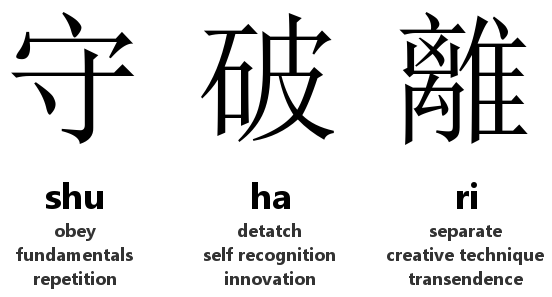First I want to thank my friend, Phuong Nam for correcting the grammar mistakes in this article 🧡.
Have you ever planned to do something new, but after that you hesitated to do it?. Even if you know you very like it, you really want to learn it. Learning new things is not easy for everybody, so how can we prepare to learn a new skill? Let's find out in this article. 🤩
You can read this article in Vietnamese here
Procrastination
The first reason that makes you do not want to learn something new is that when you prepare to learn something new, a bit of stress is added to your brain. The stress is added to the same area which activates pain, and your brain goes off as a way to protect itself. In other words, learning new things equivalent to hurting yourself, and you don't want to hurt yourself, do you? 🤕. The best solution for this is... Just do it! No one can do for you, you must do things that you like to do by yourself, once you start to do it, all the negative feeling goes away 💪🏼.
Another reason for procrastination is your concentration and attention. When you have a problem, you switch your attention to something else, which breaks your momentum. It is because when you could not reach the reward you had anticipated, your brain goes for something easier to achieve. Instead of starting over again and working to achieve long-term goals, people tend to look for short-term satisfaction through recreational activities such as playing games, surfing social networking sites, or being lazy. However, it is undeniable that studying, hardworking and dedication help you to achieve all the goals of your life.
Your learning ability decides your earning capacity. - Nishant Kasibhatla
20 hours rules.
The author of the book - The First 20 hours (Josh Kaufman) with the video above about 20 hours to learn the basic proficiency in almost any skill with dedicated practice. All of the process is divided into 4 distinct steps:
1. Deconstruct the skill
Whatever the skill you decided to learn. Break it into smaller components, and then you prioritize those components based on your goal and what you prefer to learn in that skill area.
Example: When we decide to learn to play the guitar, we don't need to learn everything about guitar to play it. You need to determine the way of playing guitar you want to learn. You should decide whether to play the guitar with basic chores to sing, to play in fingerstyle for a whole song, or to play guitar in a rock band 🎸.
2. Learn enough to self-correct
Find some resources to learn, but don't forget to practice. Learning is just a small part, you just need to learn enough to practice, identify your mistake, and self-correct, you are learning from your mistake 😇. Notice that how I make the word "enough" italics, just learning "enough" not learning as much as you can in order to spend time for practicing.
3. Remove all the practice barriers
Phone, television, Twitter, Facebook, Instagram, ... anything that can distract you from practicing must be removed. You just need to focus 45 minutes a day in a month to learn a new skill. It's worthy to dedicate all of your efforts 🥰.
4. Practice, practice, and practice
Practice, focus, and practice at least 20 hours for a new skill to see the magic happen 🤩!
For true mastery, you need to focus more on the output rather than the input - Nishant Kasibhatla
That all theory, let back to practice! 👀
In the reality world, doing everything isn't simple, especially when we try to learn a hard skill, like programming 😂. So when we face a hard problem, that prevents us from going forward. You should try to find another way to solve the problem if it exists, look at the problem in different aspects. If you can't do it yourself try to seek for help around us, go on the internet and find the solution,... Finally, after trying all your best but still cannot find the solution. Just leave it aside 😅, learn other things to improve your skill.
(For me, when I have an unsolved problem, I just tell myself I have not tried my best to find the solution yet, just leave it aside 🤔. Later on, I come back and continue to find the solution for that problem, and If I can not find out the solution, I just repeat to remind myself that I have not made my best effort yet, then I leave it and come back later until I find the solution) 😂. I think when you stuck with some problem that you think of very much but you cannot solve, just leave it to do something easier, more comfortable for your brain, and later on, you come back when you make up your mind. Who knows, you might come up with something better.
Other tips
Try to understand, don't just memorize everything you learn. Your brain is designed to memorize things you understand better than things you only try to memorize 🧠.
After learning something new, write down the most important things you need to remember about what you have learned, (just write the important things, not all). One thing for sure everything you have learned will not in your brain if you never use that. Writing down helps you remind what you have learned 🖋.
Try to share everything you have learned with everyone, including your friends, your family, and everywhere such as on the social network,... That another way to output the information you inputted. The more you can explain what you've learned to another, the more able you are to understand as well as memorizing the knowledge 👥.
Not only that, you should find a master of the skill you are interested in or the one you want to be. Try to analyze the process of their success, and try to seriously imitate it. This can maximize the chance to achieve your goal ✨. Believe it or not, in Japanese, there's a concept called Shuhari to address this method of development.

Take note, get your hand dirty! 💪🏽
Now! You have learned something in this article, just write it down ✍🏼, note it on your phone. And after that, determine what you want to learn, break it into smaller components, find resources about it. Make the plan to learn, practice it until you get it! 💥
You can make yourself more productive by mark your calendar and set an alarm on your phone for the time you'll learn. The more self-discipline we have, the more success we'll get 🤙🏼. Good luck 🍀!

